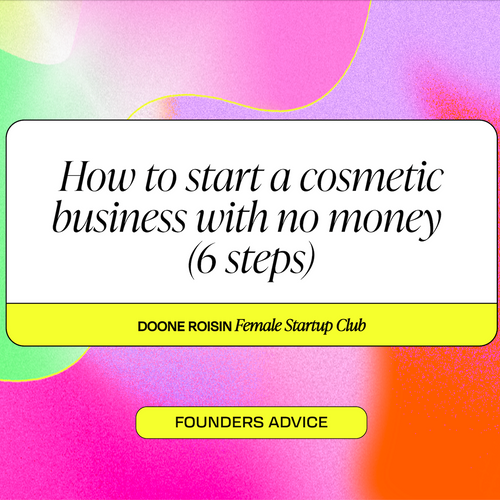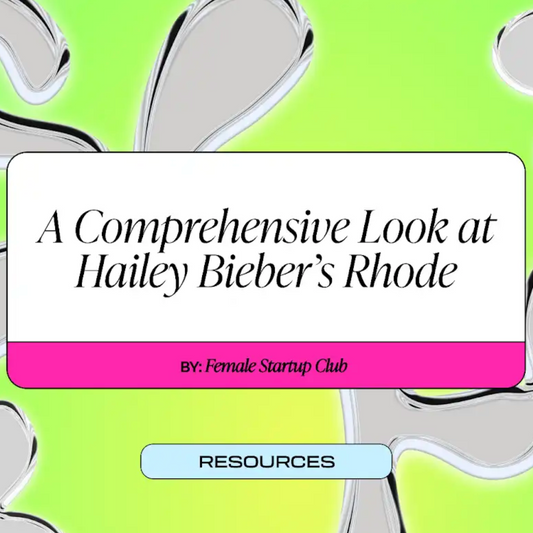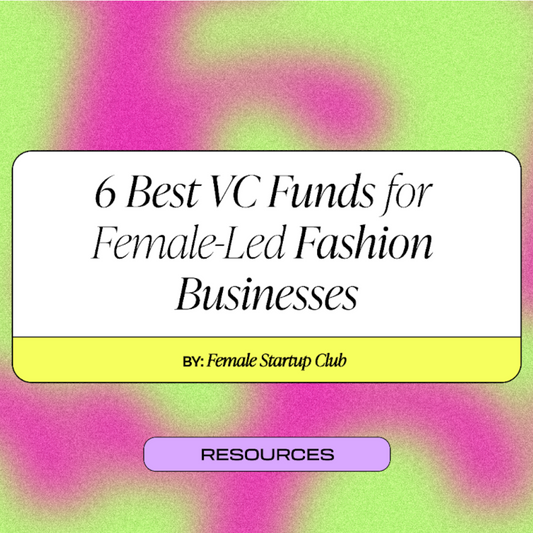HATCH is a contemporary lifestyle brand dedicated to chic clothing for before, during and after pregnancy. While pregnant in 2010, Ariane noticed a void in the maternity clothing market and it was at that moment the concept of HATCH was born.
The brand is designed to celebrate the many changes that a woman’s body experiences throughout their pregnancy, while making them feel as chic and beautiful as ever. In a natural expansion for the brand, HATCH Mama non-toxic beauty was launched in 2018 providing plant based self-care essentials for all mothers. The solution driven lines are crafted to carry women through pregnancy, and beyond.

In this episode we cover what learnings Ariane was able to take from her first venture into the second, how she got it off the ground and the moment that everything changed - when Megan Markle propelled the brand into the global spotlight after wearing a HATCH dress.
Before Hatch, Ariane was already on her entrepreneurial journey, having built a successful business. But she felt a gap in the market for maternity wear that made women feel great while navigating pregnancy. Enter Hatch Collection—a brand that has since caught the attention of celebrities like Meghan Markle, Khloé Kardashian, and Miranda Kerr.
The Celebrity Buzz
It’s incredible to think about how Ariane got on the radar of such high-profile women. She shared that stylists began to reach out to her brand when they needed chic maternity options for their clients. It was a game-changer. The moment Meghan Markle wore Hatch was like a lightning bolt for the brand. Imagine waking up to friends across the globe texting you about your designs being showcased by the Duchess herself! Talk about a major endorsement!
The Early Days of Marketing
But let’s rewind to the early days when Hatch was just a twinkle in Ariane’s eye. In those first four months after launching, things were tough. She poured her heart and finances into creating a stunning website and samples, but initially, no one showed up. Can you imagine the anxiety? It’s a feeling many of us know too well when we put our dreams out there and worry if they’ll land.
While in India, Ariane confided in her husband, Max, expressing doubts about the venture. Just when she thought it was time to throw in the towel, she received an email from a New York Times style writer who had stumbled upon Hatch’s website. This was the turning point! The article that followed created a ripple effect, drawing more attention to the brand and helping it gain the traction it so desperately needed.
Building Connections and Partnerships
Fast forward to now, and Ariane attributes much of Hatch’s growth to partnerships. Instead of relying solely on digital marketing, she’s embraced grassroots efforts like trunk shows in cities across the country. Collaborating with local influencers, mom bloggers, and like-minded stores helped introduce Hatch to new audiences organically.
By meeting customers face-to-face, Ariane was able to gather valuable insights that influenced product development. This direct interaction turned into a community-driven approach that kept the brand grounded and relatable.
Navigating Challenges and Building Resilience
Navigating through the challenges of the pandemic hasn’t been easy for Ariane and her team. Managing a remote workforce while keeping everyone engaged and motivated became her priority. She realised that a connected team could still thrive, even from a distance.
Despite the struggles, Hatch has remained a beacon of support for women. With a strong online presence and community-driven initiatives, they’ve transitioned their in-person events to virtual formats through platforms like "Babe by Hatch." This allowed them to maintain those crucial conversations about pregnancy and motherhood.
What’s Next for Hatch?
So, what’s on the horizon for Hatch? Ariane is optimistic about the future. They’re gearing up for a resurgence as the world begins to open up again, ready to launch new partnerships and collaborations. With online sales up significantly, the demand for maternity wear continues to grow, and Hatch is right in the thick of it.
Advice for Aspiring Entrepreneurs
Ariane’s journey is a testament to resilience and the power of believing in your vision. If you have a big idea brewing, her advice is to ensure it’s unique and stands out in a crowded market. She emphasizes the importance of having a clear thesis and a succinct elevator pitch that encapsulates your mission. Remember, confidence is key.



